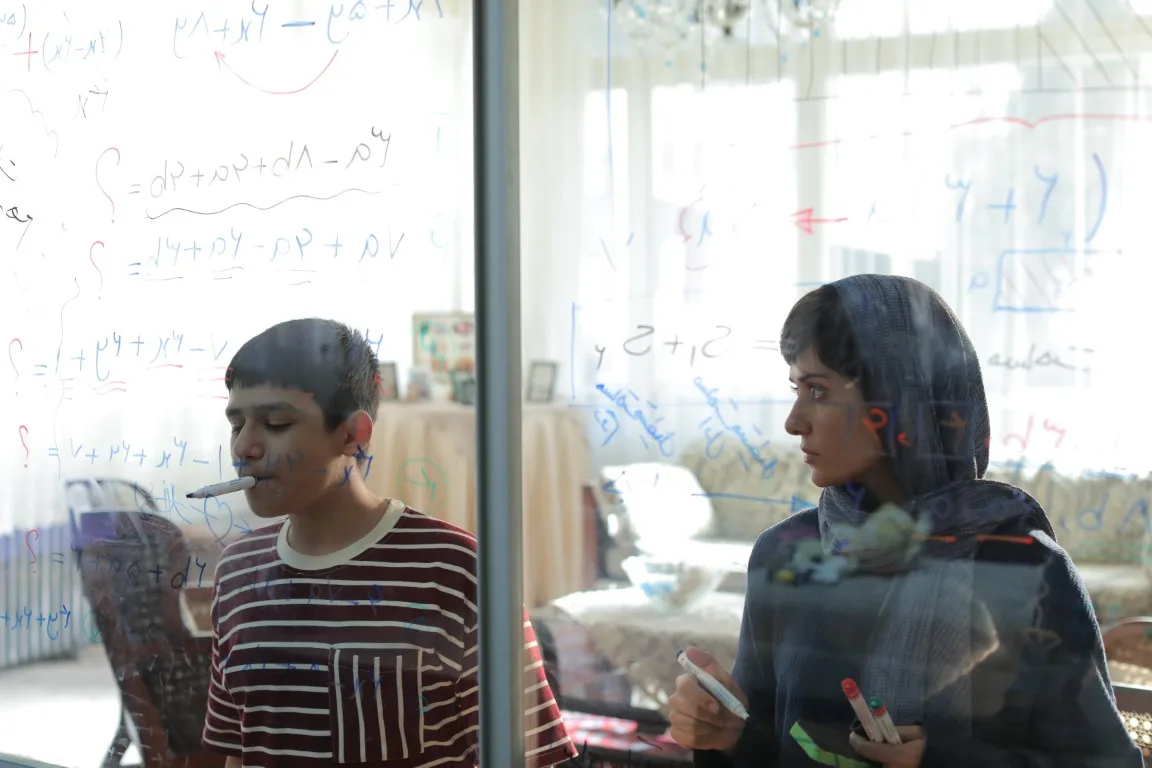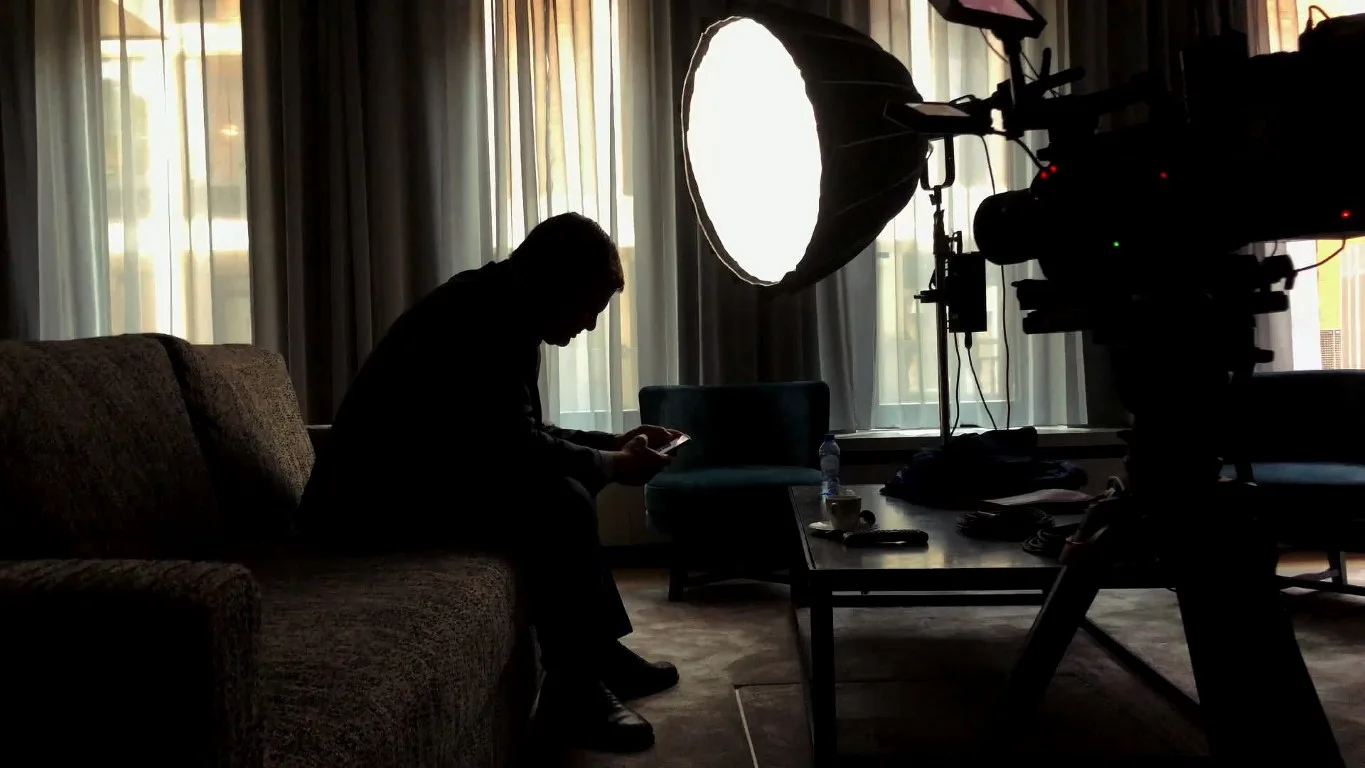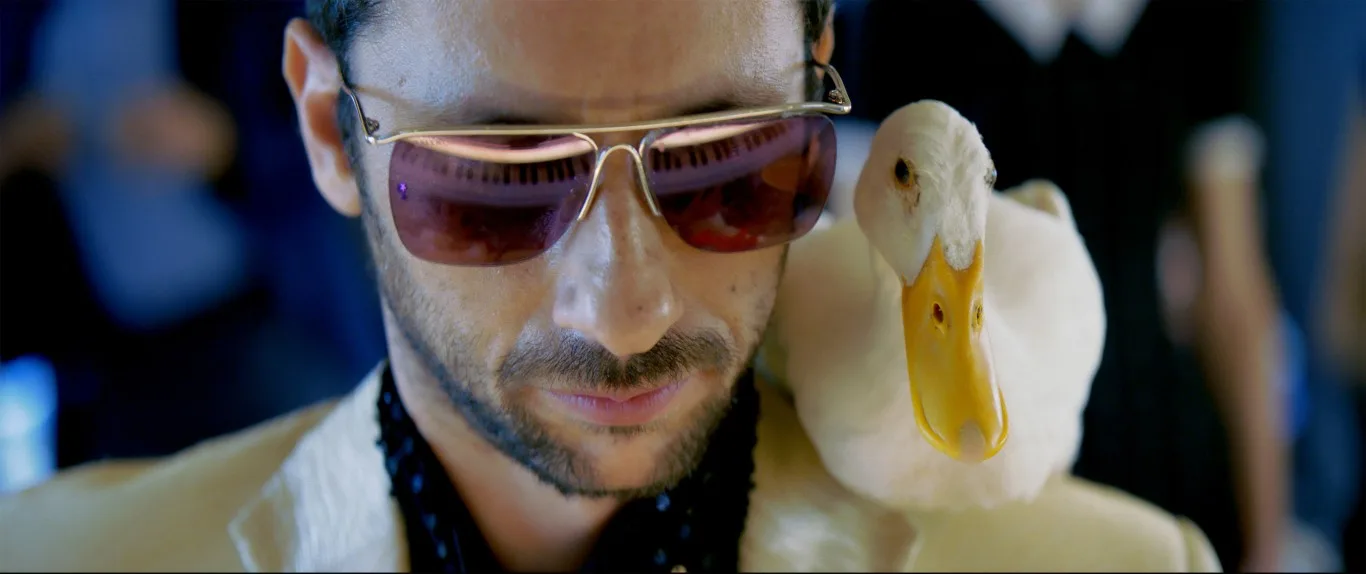Few movies at Cannes this year have been as aggressively confrontational as Nadav Lapid’s “Yes,” showing in the parallel festival Directors’ Fortnight. “Nothing in this film was reasonable,” Lapid said, introducing it on Thursday. “Nothing in this film was normal.” He praised his collaborators for following the project’s logic and repeatedly saying yes.
The Israeli director won the top prize at Berlin in 2019 for “Synonyms” and made his Cannes competition debut with “Ahed’s Knee” in 2021. “Yes” resembles the latter film: It again focuses on an artist—and presumable Lapid surrogate—named Y. (this time played by Ariel Bronz), who, against the backdrop of the war in Gaza, works on devising music for a nationalistic song for children to sing.
At the Q&A afterward, Lapid said he had always intended to make a movie about a “submissive artist,” but that the idea evolved after Hamas’s attack on Israel on October 7, 2023, and as the war unfolded. The first section of the film, titled “The Good Life,” follows Y. and his wife, Yasmine (Efrat Dor), as they lead a shamelessly materialistic and sybaritic lifestyle. The movie kicks off with an unhinged dance number, shot in lengthy takes, at a party. Y. is so physically uninhibited that he even dunks his head into a punch bowl.
“Yes” proceeds through a succession of loosely connected, vaguely allegorical set pieces. Periodically, the war that Y. and Yasmine have strived to keep out of sight intrudes. While Yasmine prepares breakfast, for instance, text alerts about the death toll are suddenly spelled out onscreen, and Lapid cuts out the audio of the kitchen, substituting the sounds of screams and military violence from Gaza.
Lapid pushes the war even further to the foreground in the second section, “The Path,” which finds Y. and an ex-flame, Lea (Naama Preis), driving into the area of the October 7 attack. At Y.’s urging, Lea delivers a lengthy monologue about the events of that day. Soon after, Lapid shows Y. looking out at Gaza in the near distance, with the smoke of combat clearly visible in the background.
The director’s ideas do not always cohere, individually or collectively, and his penchant for unmitigated bombast tends to be off-putting even when it makes sense for the context. But if “Ahed’s Knee” felt like a case of a director venting personal invective, here he has found his way to direct his anger more productively. This frantic, outsized movie has a cumulatively purgative effect.

“You didn’t want a woman and a child,” Mahnaz (Parinaz Izadyar), a nurse, widow, and the mother of two kids, tells Hamid (Peyman Moadi), the E.M.S. worker whom she had planned to marry. “You wanted a child-woman.” On paper, it sounds like a too-on-the-nose declaration of a film’s themes, but by that point in Saeed Roustaee’s competition entry “Woman and Child,” Mahnaz is well past the point at which anyone would have broken.
Roustaee, previously in competition with “Leila’s Brothers” (2022), which got him in legal trouble with Iranian authorities, has an approach that bears a marked resemblance to that of his fellow Iranian filmmaker Asghar Farhadi (Moadi starred in Farhadi’s “A Separation”). The idea is to present a seemingly placid surface and then gradually reveal layers of ambiguity and moral complexity until nothing is as it originally appeared.
In following Mahnaz, “Woman and Child” systematically traces how she is wronged by the men in her life, who are duplicitous, unscrupulous, uncaring, and violent at various points. Yet both the law and cultural expectations are tipped in their favor. The arc of “Woman and Child” follows how Mahnaz, and to a lesser degree her younger sister, Mehri (Soha Niasti), and mother (Fereshteh Sadr Orafaee), who initially makes apologies for patriarchal control, put some distance between themselves and these men, excising them, just as the title does.
“Woman and Child” pointedly opens with a shot of Mahnaz’s face utterly frozen in place, as she prepares for a beauty treatment; until her eyes move, it’s unclear that we’re even looking at a living person. The movie ends with a breathtaking sequence that involves Mahnaz creating another sort of partition between herself and Hamid.
The film sometimes seems uncertain of itself en route to that charged finale; the plot pivots on a horrifying offscreen incident that, as initially described, doesn’t make any sense. But be patient; the account is revisited and revised throughout the narrative. “Woman and Child” is more conventional in approach than the other, superior Iranian film in competition, Jafar Panahi’s “Death and the Maiden”–like “It Was Just an Accident.” However, it’s still a powerful and engaging piece of work.

At the start of Eugene Jarecki’s Julian Assange documentary, “The Six Billion Dollar Man”—showing in the special screenings section at Cannes after withdrawing from Sundance to add material—Edward Snowden argues that Assange is not a spotlessly clean figure, but that the bottom line on his legacy comes down to a simple question: “When we have been lied to,” Snowden asks, “would we rather not know?”
The documentary then effectively drops any pretense of complexity. If you want a film that paints Assange’s work with WikiLeaks as single-handedly responsible for President Obama’s decision to end combat missions in Iraq, “The Six Billion Dollar Man” is your movie.
Jarecki offers a recap of Assange’s history from 2010, when the release of a video from Iraq drew international attention to WikiLeaks, through his return to his native Australia last year, portraying him as a responsible publisher who challenged powerful interests and was hounded for it. Special attention is devoted to the seven years that Assange spent holed up in the Ecuadorean embassy in London—just a ground-floor flat, we’re told, in case you thought being confined to one building for that long was a luxury—and how the experience pushed him to the brink. (Among other things, it was revealed that he had been under surveillance.)
But even the baseline Assange has long been regarded by collaborators as conspiratorial, and the documentary weakens its argument by skirting the fact that he has always been a divisive figure, hardly an ideal advocate for his message of transparency. He is certainly worth serious consideration, more than the hero worship of Jarecki’s filmmaking gives him.











